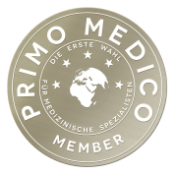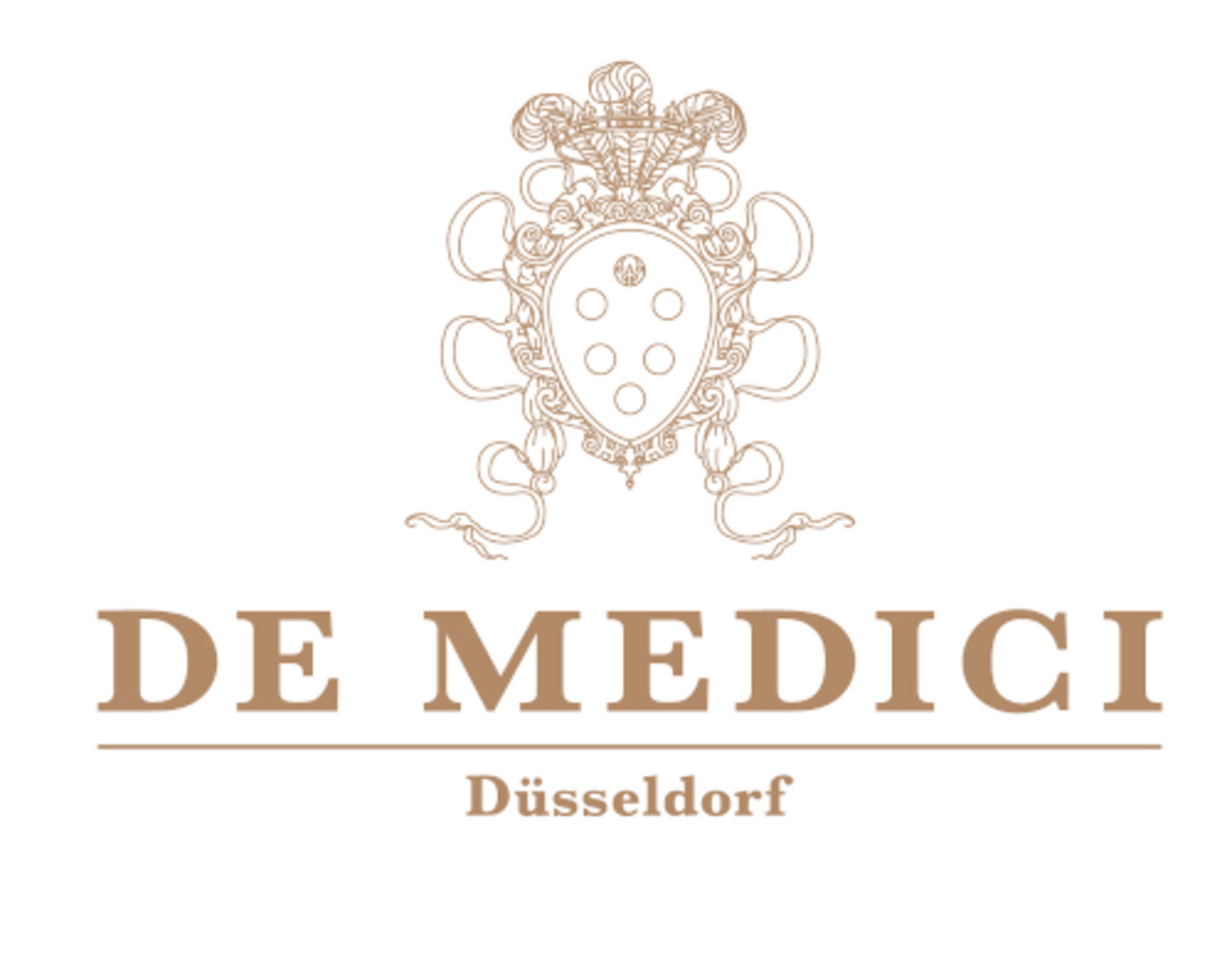Oncologic Surgery Neuss (NRW): Prof. Dr Alexis Ulrich
Treatment focus
Oncologic surgery of:
- Pancreatic cancer
- Liver cancer
- Gastric and esophageal cancer
- Colon and rectal cancer
- Neuroendocrine tumors
Contact
Rheinland Klinikum Lukaskrankenhaus
Clinic for General and Visceral Surgery
Preußenstraße 84, D-41464 Neuss
P: +49 2131 537 9006 F: +49 2131 888 3099
Consultation Hours:
Private consultation hours:
Daily 08:30 AM - 10:00 AM
By appointment

Medical Range
Range of Diagnostic Services
- (Interventional) endoscopy
- CT/MRI diagnostics
- Angiography
- Sonography
- Sonographic elastogram
Range of Therapeutic Services
- Interventional radiology
- Interventional endoscopy
- Open, "classic" minimally invasive, robotic surgery (da Vinci)
- Oncology/hematology
More Information
Card
Prof. Dr Alexis Ulrich is a specialist in oncological surgery and head physician of the Clinic for General and Visceral Surgery at Lukaskrankenhaus at Rheinland Klinikum Neuss.
Patients with cancer receive optimal treatment at Lukaskrankenhaus in Neuss in line with the latest scientific standards, where possible, using minimally invasive, sometimes robot-assisted surgery. It is important to Prof. Ulrich's highly motivated, qualified team that the structures and processes are tailored to the individual patient's needs and that personal attention and empathy are guaranteed in addition to medical care.
Oncological Surgery at the Highest Level: State-of-the-art Treatment Concepts for Cancer Diseases
The Department of Oncological Surgery at the Rheinland Klinikum in Neuss offers a wide range of major and minor surgical procedures in oncology.
With a high degree of experience and expertise in robot-assisted surgery and minimally invasive procedures, Prof. Ulrich's team guarantees patients excellent treatment in line with the latest scientific standards.
As a Germany-wide reference center, the team is actively involved in clinical research and training for surgeons. Close cooperation with other specialist areas such as radiation medicine, medical oncology, anesthesia, interventional radiology, and pathology enables the development of sophisticated and comprehensive treatment concepts, which all departments continuously re-evaluate.
In this way, patients receive individual and professional treatment for their cancer. The oncological surgery team supports patients with a great deal of empathy during diagnosis, surgery, and follow-up treatment.
Pancreatic Cancer Diagnosis & Surgery: The Latest Methods and Many Years of Experience
The pancreas is an essential organ of the digestive system that plays a significant role in producing digestive enzymes and insulin.
Although malignant degeneration of the pancreatic tissue is one of the rarer forms of tumor, it usually has a highly aggressive course. Until now, pancreatic carcinoma could often only be diagnosed at a later and, therefore, advanced stage. However, thanks to the latest research findings and new therapeutic approaches, the prognosis of the disease is gradually improving.
The oncological surgery team at Lukaskrankenhaus works according to the latest scientific standards, and the doctors in Neuss are committed to continuous further training and education on the latest findings.
The development of pancreatic cancer can be caused by chronic inflammation of the tissue, and in rare cases, genetic factors also play a role. Other known risk factors are chronic alcohol consumption and long-term smoking.
The treatment of pancreatic cancer is often a challenge. Prof. Ulrich's team has many years of experience and sensitivity in this area, enabling them to create a sophisticated treatment concept. The possible main components of treatment are surgical therapy and chemotherapy. An interdisciplinary approach is used to decide whether immediate surgery is possible or prior chemotherapy can be used to achieve an operable condition. This means that patients who previously had to be denied surgery can still be operated on.
Thanks to continuous medical development in this field, the latest surgical methods can be used, which are carried out precisely and with sophisticated techniques by specialists in oncological surgery at the Rheinland Klinikum.
Treatment of Liver Cancer: Greatest Expertise in the Treatment of Malignant Tumors of the Liver
Three different types of liver cancer can be distinguished, depending on the original tissue of the tumor. Hepatocellular carcinoma originates from the liver cells, while bile duct cancer originates from the bile ducts. Both tumor entities are malignant and are classified as liver cancer. The third area is liver metastases, which are tumor metastases from other organs that spread to the liver.
The main risk factors for malignant degeneration are chronic inflammation of the liver, for example, due to alcohol abuse and the resulting liver cirrhosis, but also mold contamination, certain viral diseases, and storage disorders.
Depending on the tissue of origin, a different treatment regime is used, so a precise clarification of the origin is important. Here, too, an interdisciplinary strategy for optimal treatment is determined.
Diagnosis and Treatment of Gastric and Esophageal Cancer in North Rhine-Westphalia
Gastric cancer is still one of the more common types of cancer. The most significant risk factors for the development of gastric cancer include chronic inflammation of the stomach lining, nicotine consumption, and a family predisposition. Infections with Helicobacter pylori also cause chronic inflammation of the gastric mucosa and consequently increase the risk of stomach cancer. Generally, only non-specific symptoms appear at first; stomach pain, loss of appetite, and weight loss may occur.
Cancer of the esophagus, on the other hand, manifests through difficulty swallowing, hoarseness, and pain, for example. Risk factors for the development of esophageal cancer are smoking, alcohol consumption, and years of experiencing heartburn.
The specialists in Neuss carry out an esophagoscopy and gastroscopy with sampling to confirm the diagnosis. Furthermore, in collaboration with the radiology department, staging is carried out using CT or MR imaging. An interdisciplinary treatment plan is created, and a chemotherapy regimen is determined. The following steps to be taken by the patient are discussed in detail with the doctors. There is plenty of time for questions and concerns so that the team always supports patients during this challenging phase of their lives.
The surgical removal of the tumor and affected lymph nodes requires the highest level of medical expertise and many years of experience. Depending on the extent of the tumor, various surgical procedures are available for both gastric and esophageal cancer. Under Prof. Ulrich's direction, the surgical team has outstanding expertise and skill in robotic surgery.
Colon and Rectal Tumors: Many Years of Scientific and Clinical Experience in a Center of Competence
Carcinomas of the colon, rectum, and anus are tumor diseases originating from the mucous membrane of these intestinal sections. Colorectal cancer is currently the third most common cancer in Germany.
Once the diagnosis has been confirmed by a tissue sample taken during a colonoscopy, further examinations are necessary to determine the extent of the cancer. Imaging procedures (ultrasound, X-ray, computer tomography, and magnetic resonance imaging) are used to examine the extent of the tumor and possible spreading foci. The patient's disease is then discussed in the interdisciplinary tumor conference of gastroenterologists, oncologists, surgeons, and pathologists to determine the treatment concept.
The majority of patients with colorectal cancer undergo surgery. Our surgical clinic uses the latest minimally invasive and robotic procedures and modern anesthesia methods. The combination of minimally invasive surgery and state-of-the-art post-operative treatment (fast-track surgery) enables a rapid recovery and discharge home or to a rehabilitation facility, depending on the patient's needs.
After our in-house pathology department analyzes the tumor removed, we discuss the results again in our tumor conference.
Neuroendocrine Tumors: Medical Expertise and Minimally Invasive Surgical Procedures
Neuroendocrine tumors are a very rare and diverse group of cancers that can manifest in various organs of the body. The tumor originates from hormone-producing cells and can be either hormone-active or inactive.
When hormone production is active, a whole range of different symptoms can appear, including reddening of the skin, shortness of breath, digestive problems, and weight loss. It is divided into well-differentiated, slower-growing, poorly differentiated, and, therefore, more aggressive tumors. Detailed hormone diagnostics and staging using imaging techniques are essential when planning the treatment.
Neuroendocrine tumors require close interdisciplinary cooperation. The oncological surgery department at Lukaskrankenhaus offers a competent consultation service for this rare cancer. Surgical treatment is often minimally invasive and is accompanied by extensive pre-and post-treatment.
A close European network and lively exchange with other experts serve to ensure optimal and multi-faceted treatment of this rare tumor. The prognosis of the carcinoma can vary significantly due to the very different differentiation.
You will find more information on the Clinic for General and Visceral Surgery website at Lukaskrankenhaus Neuss and the Cancer Surgery NRW website.
Curriculum Vitae
| Since 07/01/2018 | Head Physician of Surgical Clinic I (General, Visceral, Thoracic and Vascular Surgery), Städtische Kliniken Neuss - Lukaskrankenhaus - GmbH |
| 01/01/2014 – 30/06/2018 | Representative Medical Director and Leading Senior Physician, Surgical University Hospital Heidelberg |
| 09/01/2012 – 06/30/2018 | Head of the Surgical Oncology Section, Surgical University Hospital Heidelberg |
| 07/01/2007 – 07/01/2011 | Head of the Clinical Study Center (KSC), Surgical University Hospital Heidelberg |
| Since 03/27/2011 | Specialist Physician in Special Visceral Surgery |
| Since March 2011 | Additional Further Training in Special Visceral Surgery |
| Since September 2009 | Extraordinary Professorship (University of Heidelberg) |
| Mai 2009 – 12/31/2013 | First Senior Physician, Surgical University Hospital Heidelberg |
| 06/01/2007 – Mai 2009 | Senior Physician, Surgical University Hospital Heidelberg |
| 06/14/2006 | Habilitation with Venia Legendi in the Field Surgery from the Medical Faculty of the University of Heidelberg Topic: "The Role of the Langerhans' Cell in the Development of Pancreatic Carcinoma, with Special Focus on Drug-Metabolizing Enzymes" |
| February 2006 | Clinical Trial Investigator Course for Surgeons, Heidelberg (KKS) |
| Since 03/03/2005 | Specialist in General Surgery |
| 11/01/2001 – March 2005 | Assistant Physician, Surgical University Hospital Heidelberg |
| December 2002 – October 2008 | Research grant from the German Research Foundation (DFG) |
| 10/01/2000 – 10/312001 | Assistant physician, Clinic and Polyclinic for Surgery, Rheinische Friedrich-Wilhelms-Universität Bonn, Director: Prof. A. Hirner Rotation, Clinic and Polyclinic for Trauma Surgery, Head Trauma Surgeon Prof. Dr C. Rangger |
| June 2000 – September 2000 | Research Scholarship Golder of the NIH, USA |
| 06/01/1998 – 05/30/2000 | Research Scholarship from the German Research Foundation (DFG) Postdoc at the Eppley Institute for Research in Cancer, Omaha, NE, USA, Supervisor: Prof. Parviz Pour |
| 03/01/1998 – 05/31/1998 | Assistant Physician Clinic and Polyclinic for Surgery, Rheinische Friedrich-Wilhelms-University Bonn, Director Prof. Dr A. Hirner |
| 05/01/1997 – 02/28/1998 | Basic Military Service as a Staff Physician at the German Federal Armed Service Medical Center Bonn, Federal Ministry of Defense |
| June 1998 – September 2000 | Research Scholarship Holder of the DFG, the NIH Eppley Institute for Research in Cancer, UNMC, Omaha, Nebraska, USA |
| May 1997 | United States Medical Licensing Examination (USMLE) |
| 09/18/1996 | Doctorate from the Heinrich Heine University Düsseldorf |
| 11/01/1995 – 04/30/1997 | Internship, Clinic and Polyclinic for Surgery, Rheinische Friedrich-Wilhelms-University Bonn, Director Prof. Dr A. Hirner |
| 1995 | 3rd State Examination in Medicine, Düsseldorf |
Qualifications
- Specialist designation in surgery
- Focus on special visceral surgery
- Certified console surgeon (robotic surgery)
- Consultation center of the German Continence Society
Additional Qualifications
- Master of Business Administration Academical Studies
- Steinbeis Business Academy (SBA) of Steinbeis University Berlin
- Degree: Master of Business Administration (MBA)
Team
- Dr Bernhard J. Lammers
Leading Physician - Dr Sandra Henn
Senior Physician in Charge - Andreas Bär
Senior Physician - Dr Björn Dirk Sostmann
Senior Physician - Dr Tobias May
Senior Physician - Dr Roald Özelli
Senior Physician
Transport Connections
| Neuss Main Station | 2.1 km |
| Düsseldorf Airport | 25 km |
| Cologne/Bonn Airport | 56 km |
Information about Neuss
Neuss is a major city in North Rhine-Westphalia and one of Germany's oldest cities. The city on the Rhine is known for its Roman past, the Rhine harbor, and the Neuss citizen fair featuring shooting matches. Visitors can stroll through the picturesque streets of Neuss' shopping districts and indulge in the wide range of gastronomy.












